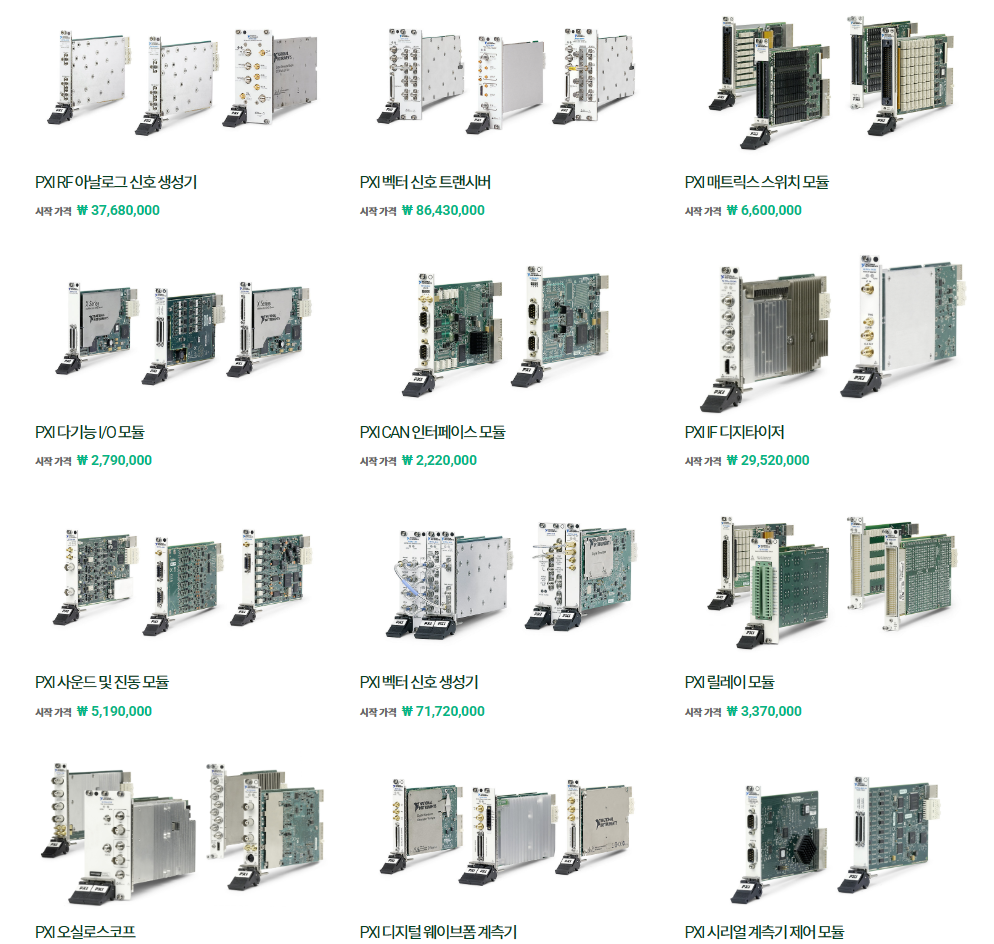반응형
PXI (PCI eXtensions for Instrumentation)
PXI(PCI eXtensions for Instrumentation)는 NI(National Instrument)사에서 만든 계측 및 자동화 시스템을 위한 PC 기반 플랫폼이다. PXI는 상용 PC 기반의 PCI 버스 기술을 활용하면서도 모듈식 PCI 패키징을 결합한 구조를 가지고 있다.
PXI 시스템의 구성 요소
PXI 시스템은 다음과 같은 세 가지 주요 하드웨어 구성 요소로 이루어진다.
- Chassis(섀시): PC의 본체(enclosure)에 해당하며, PXI 모듈을 장착할 수 있는 슬롯을 제공한다.
- Controller(컨트롤러): PC의 CPU, 메모리 및 I/O에 해당하는 역할을 수행한다. PXI Controller는 보통 Windows OS와 함께 제공된다.
- Peripheral Modules(주변 모듈): 일반 PC의 PCI(e) 주변 장치와 동일한 역할을 하며, 다양한 계측 및 자동화 기능을 수행하는 모듈이다.


PXI 시스템 개발 및 운영
Windows 기반의 PXI 또는 PXI Express 시스템 개발 및 운영 방식은 일반적인 Windows 기반 PC와 다르지 않다. PXI 시스템을 제어하는 대표적인 방법은 다음과 같다:
- LabVIEW: 테스트 및 계측을 위한 그래픽 기반 프로그래밍 언어 G를 사용하여 신속한 개발 가능
- LabWindows/CVI: C 기반 개발 환경 제공
- Visual Studio .NET, Visual Basic, Python, C/C++ 등과 같은 다른 프로그래밍 언어도 사용 가능
Reference : https://www.ni.com/en-us/shop/pxi/introduction-to-the-pxi-architecture.html
반응형
'임베디드 개발 > 펌웨어' 카테고리의 다른 글
| readelf 명령어와 elf 파일 구조 (0) | 2023.06.25 |
|---|---|
| JTAG, SWD (0) | 2023.06.25 |
| UDS (차량용 진단 통신) (0) | 2023.06.09 |
| CAN ISO-TP (2) | 2023.05.31 |
| ARINC-429 Word Format (0) | 2023.05.31 |



